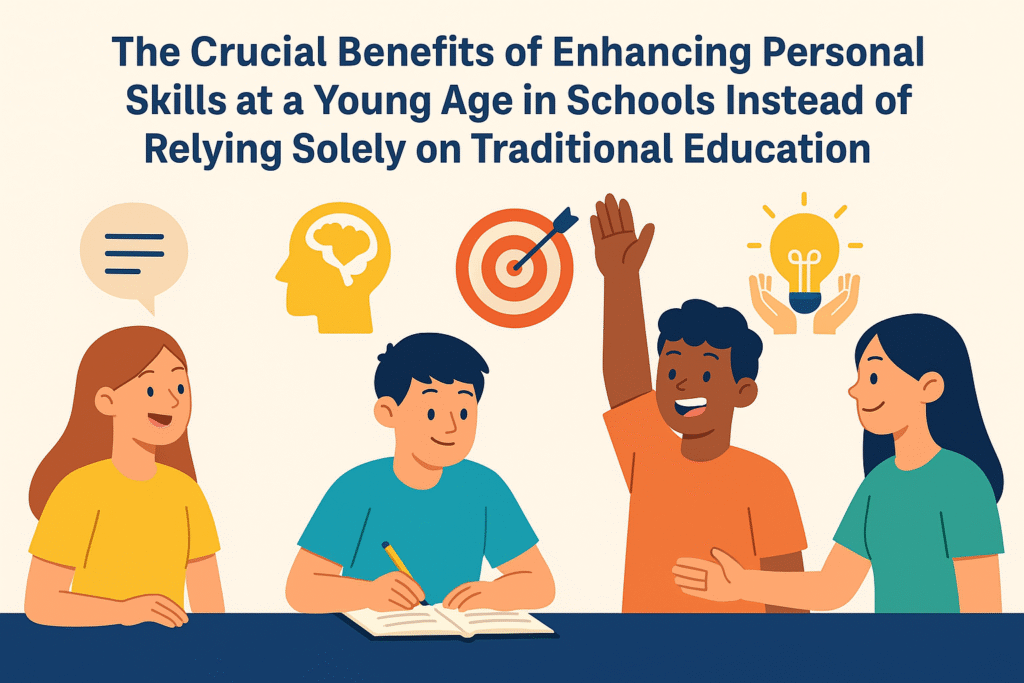The Crucial Benefits of Enhancing Personal Skills at a Young Age in Schools Instead of Relying Solely on Traditional Education

Introduction
In a rapidly evolving world marked by automation, artificial intelligence, and dynamic job markets, traditional education models focused on rote learning and standardized testing are increasingly being called into question. While core academic skills remain vital, there’s a growing recognition that personal skills—also known as soft skills or life skills—are equally crucial, especially when nurtured from an early age. Integrating personal skill development into school curricula can profoundly shape the character, mindset, and long-term success of children.
What Are Personal Skills?
Personal skills refer to a broad range of non-academic abilities such as communication, emotional intelligence, adaptability, problem-solving, teamwork, leadership, and self-discipline. These skills are not only critical for professional success but also for navigating everyday life, building relationships, and maintaining mental well-being. When taught intentionally from a young age, they form the foundation of emotional resilience and social competence.
Key Benefits of Early Personal Skill Development
- Improved Emotional Intelligence (EQ):
Emotional regulation and empathy allow children to manage conflicts, understand others’ perspectives, and make better decisions in both academic and social settings. - Stronger Communication Skills:
Through activities like debates, storytelling, and group projects, students learn to articulate their thoughts clearly and listen actively, making them more confident and socially competent. - Better Adaptability and Resilience:
Children trained in critical thinking and adaptability respond more positively to change, setbacks, and challenges—skills that are invaluable in a volatile world. - Enhanced Academic Engagement:
Contrary to misconceptions, focusing on personal development doesn’t detract from academic performance. In fact, students with higher personal skills often show increased motivation, better concentration, and stronger academic results.
Moving Beyond Traditional Models
Traditional education systems, especially in many parts of the world, prioritize memorization and rigid assessments. This approach often neglects the holistic development of a child. In contrast, skill-based learning fosters curiosity, initiative, and the confidence to apply knowledge practically. Educational reforms that incorporate project-based learning, emotional coaching, and interdisciplinary activities create an environment where students learn how to learn—not just what to learn.
Long-Term Impacts
Research consistently shows that students with well-developed personal skills are more likely to succeed in their careers, maintain healthy relationships, and report higher life satisfaction. Moreover, employers today are increasingly valuing soft skills over technical degrees, emphasizing teamwork, communication, and problem-solving as key hiring criteria. By starting early, schools can equip students with a lasting competitive edge.
Conclusion
Integrating personal skills training into school education is no longer a luxury—it’s a necessity. The future belongs to individuals who can think critically, communicate effectively, and collaborate seamlessly. By reimagining school systems to balance traditional academics with personal development, we prepare children not just to pass exams, but to thrive in life. The earlier this journey begins, the greater the transformation for both the individual and society.
Source : Medium.com




